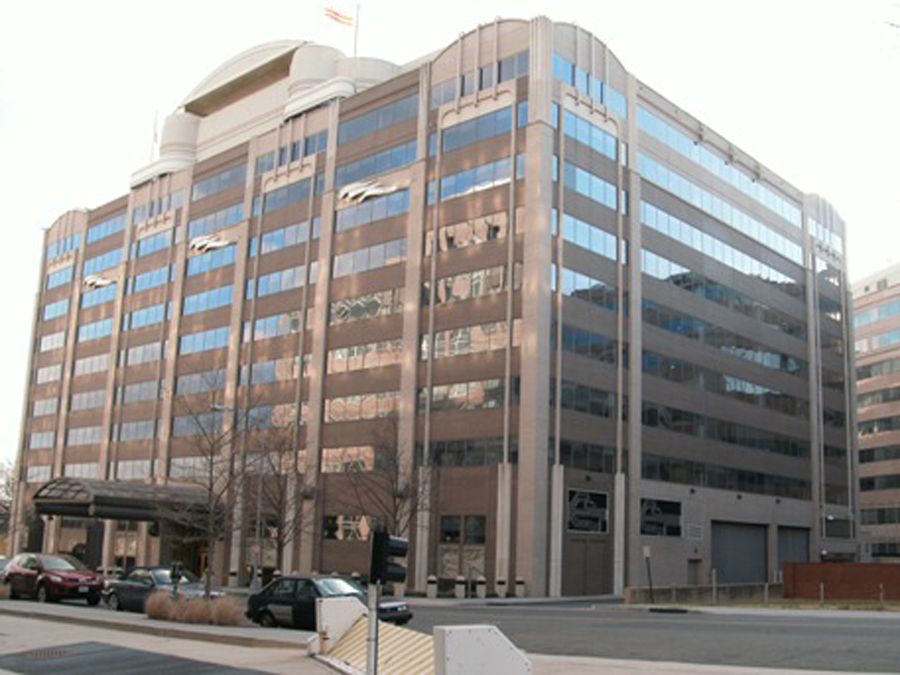FCC: LPTVs Can't Demand Satellite Carriage
Said differences in cable, satellite regimes are clear in statute

The smarter way to stay on top of broadcasting and cable industry. Sign up below
You are now subscribed
Your newsletter sign-up was successful
The Biden administration is telling a federal court that low power TV stations (LPTVs) are not eligible for satellite must-carry and it should reject a challenge to a clear statutory directive to that effect.
That came in a brief to the U.S. Court of Appeals for the D.C. Circuit, the court of principal jurisdiction over FCC decisions, filed by the FCC and Justice.
While some low-powers are eligible for cable must-carry, the FCC said the statute is clear that is not the case with satellite even for similarly situated stations.
Cable must-carry applies to full-power TV stations and certain “qualified” LPTVs. To qualify, a low-power station must be within 35 miles of a cable headend and there must be "no full power television broadcast station licensed to any community within the county or other political subdivision … served by the cable system."
Also Read: New LPTV Association Launches
Satellite must-carry is a bit different. No satellite carrier has to carry local TV stations, but if they carry one in a given market then they must carry all of them, though only full-power stations. The statute holds that low-power WVUX-LD Fairmont, West Virginia, petitioned the FCC for a declaratory ruling and demand for carriage from Dish Network and DirecTV, which the FCC denied, citing the statute language that satellite must-carry does not include “low-power TV stations,” and saying that language was “fatal” to the petition.
The owner of WVUX, Michael Karr, sought FCC review, but was denied. Karr then sued the FCC, arguing it had misapplied the statute and that, in any event, the disparate treatment by cable and satellite was an unconstitutional abridgement of speech. He pointed out that his low-power met the definition for “qualified” LP under cable must-carry.
The smarter way to stay on top of broadcasting and cable industry. Sign up below
The FCC said in its brief to the court that "the fact that WVUX-LD qualifies for carriage by its local cable operator as a qualified low power television station has nothing to do with whether it qualifies for carriage by a satellite carrier."
Also Read: FCC Doesn't Suddenly Grant Must-Carry to LPTVs
Karr argued that a footnote in a 2016 Government Accountability Office report on low-power TV (“17 Federal law requires cable and satellite operators to carry the signal of qualified LPTV stations serving their markets”) was “persuasive authority.” But the FCC said the footnote was just wrong and that an inaccurate statement does not trump the clear language of the statute.
Karr said the FCC should have found a way to interpret the statute differently to avoid running afoul of equal protection given the disparate treatment of LPTV by satellite and cable. But the FCC said the doctrine of “avoidance” does not allow an agency to rewrite a statute under the guise of interpreting it.
“Congress may well have thought it reasonable to require cable companies, under their local franchises, to carry qualified low power stations, since such stations qualify only if, among other things, they provide programming “address[ing] local news and informational needs which are not being adequately served by full power television broadcast stations,” the brief said. “By contrast, the basis for the carriage obligation of satellite carriers reasonably takes account of the fact that they provide programming on a nationwide basis, and their obligation to carry local stations is a consequence of their voluntary choice to provide local programming.”
The FCC and Justice also pointed out that Congress treated cable and satellite carriage differently because the services are different, one being that cable is a local franchise while satellite is a national service and another that there are technical issues to carrying local TV stations on a satellite that cable does not have.
As to a First Amendment argument, the FCC and Justice said the complaint does not allege that the differential treatment of cable and satellite in statute is an attempt to disfavor the speech of one over the other, while WVUX’s speech rights are not implicated since it is free to broadcast and has no inherent right to have it signals carried by satellite.
"The LPTV Broadcasters Association firmly believes in all re-trans opportunities for both Full Power and Low Power TV," said Michael Lee, executive director of the LPTV Broadcasters Association. "We stand with Michael Karr and WVUX in seeking satellite carriage. Small and rural LPTV stations are often the only front line for local and community news. The recently introduced Local Journalism Sustainability Act strongly recognizes the role and importance of local broadcasters."
Contributing editor John Eggerton has been an editor and/or writer on media regulation, legislation and policy for over four decades, including covering the FCC, FTC, Congress, the major media trade associations, and the federal courts. In addition to Multichannel News and Broadcasting + Cable, his work has appeared in Radio World, TV Technology, TV Fax, This Week in Consumer Electronics, Variety and the Encyclopedia Britannica.

